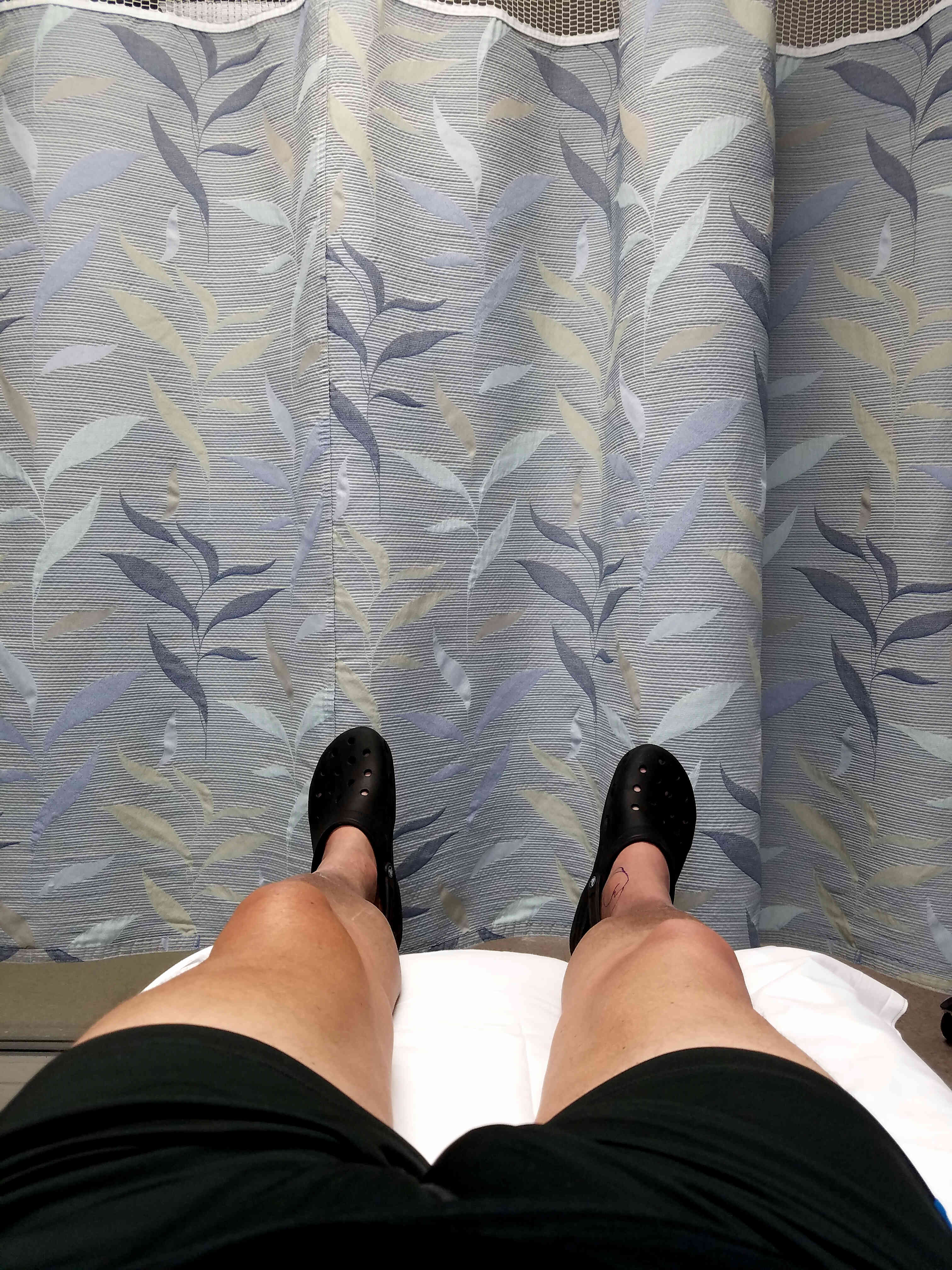Today, I feel incredibly lucky. Here’s why.
It is not because I just spent six nights in a hospital bed wrestling with nasty cellulitis and emerged victorious. Happy, sure, but that’s not why.
Not because I have a good job with great insurance to cover it. Thankful, yes, but that’s not why.
Not because I run a department from which I could be away for a week and have everything taken care of by fine deputies. Fortunate, absolutely, but that’s not why I feel so lucky.
Not because I’m almost pain-free now. Relieved? Mm hmm, but that’s not why.
Not even because I have a loving and supportive wife, making it obvious why married dudes (and dudettes and everyone in-between) live longer. Even that’s not why.
Then why?
Because I did not have to worry for one single moment about Ben.
Not to sound morbid or dour, but any parent of a person with severe autism – well, you know what I’m about to write.
All of us have had the same middle-of-the-night terrors, the same brutally nagging, tossing and turning questions: Who will love, care, provide, and basically take care of our most vulnerable loved one(s) when we shed our mortal coils? Who will manage his later years and the same aging issues all of us face? Who will know how to help him with his old-man problems? Who will be there for Ben in his final moments?
For so many of us, the only solution we can come up with, desperately and secretly at 3:00 AM, is an overwhelmingly anti-instinctual wish: Let me outlive my kid. Maybe by just a single day, or a single hour, but that’s enough.
The slight reminder of my mortality last week, even if it was only cellulitis, and whether I realized it or not, was a little trial balloon.
And, I have a healthy partner to deal with our autism-centered life.
But even with our marital advantage, we ain’t getting any younger. Our not-too-distant 60-year milestone isn’t a gravestone, but every moment drags us closer to it. Twenty-three year old Ben will most likely outlive us.
We have friends dealing with autism without partners and on their own, yet somehow they manage to do it all, with whatever support they can draw from anywhere. They are ultimate examples to us of, “Count your blessings, no matter how bad you think it is.” They astound me and truly fill me with awe.
If I were a single parent or a widower, what would have happened last weekend if Ben lived with me and I ended up in a wheelchair being pushed through the ER, and not able to pick him up when his day program let out, or put him safely to bed that night? What would I have done when they checked me in with a condition requiring six days in a hospital bed?
Ben is not someone who can simply transition to a temporary situation. There is no such thing as a “small” change for him. Taking a different driving route to McDonald’s can throw him off in upsetting ways. Ben is a beautiful person, but his autism is a full-time job requiring expert 24/7 vigilance.
What if, as is happening to people all over the world at this moment, I were getting test results during that hospital stay telling me my days are numbered, and that number is small?
What about when those days run out and I’m looking at Ben for the last time? What if his living situation depended on me?
This is the waking nightmare that keeps us from getting to sleep to have ordinary nightmares.
It is because I am so, so lucky that my mind didn’t go there during my hospital stay. We are lucky. Even Ben, for all his bad luck, is lucky.
He is in a good place. The organization is established, and, by all appearances, will be around for the rest of his life.
Who could ask for anything more? In our current special-needs, service-poor world, hoping for half of that can seem optimistic.
Karen and I have the luxury of narcissism. I know it isn’t really narcissistic to take care of yourself when you’re not well; to fret and frown and wince and whine; to want others to help you through. Our self-absorption helps us survive. Those dealing with severe autism without partnership or extensive support for our sons and daughters can not so easily indulge this healthy and instinctual self-preservation that, ironically, keeps us around longer to care for them. Once again, with autism, instinct is turned on its head.
So I got to spend a week in what now seems like a Hospital Bed Club Med, focused only on getting better. My ankle ached, blood was drawn, tests were run, I limped to and from the bathroom attached to a metal rack holding bags attached to tubes attached to needles pouring antibiotics into my arm. It was all I needed to think about.
For many of you, I know that sounds like heaven on earth.
In hindsight, it was. Ben was OK.

Also on my Huffington Post blog: Severe Autism Makes EVERYTHING Complicated, Including a Parent’s Hospital Stay
